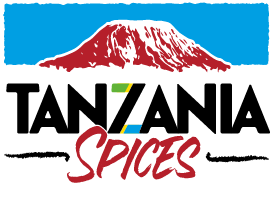Interested in buying high-quality Tanzanian pepper?
Tanzania’s specialty spices
Tanzania produces over 30 important spices for both local and export markets. These include clove, pepper, ginger, cinnamon, cardamom, chillies, onion, coriander, garlic, lemongrass and vanilla.
The Tanzania Spices label initially covers crops with the highest export market potential: clove, pepper, ginger, cinnamon and cardamom.
“Global demand for spices is increasing, driven by the desire for healthy lifestyles with natural ingredients over artificial ones. Consumers are fascinated with natural flavours of ethnic cuisines.
”
Clove dominates Tanzania’s global spices exports with over 90% market share.
Rapidly growing plantations on the mainland continue to boost production, with export prices increasing at the rate of 7-16%. Clove is an important export crop in general, and in particular for Zanzibar.
Claimed health benefits of cloves: Cloves are high in antioxidants, may kill bacteria and relieve nausea, vomiting, cough and gastrointestinal pain. Studies have shown that cloves can help fight cancer, improve liver and bone health, regulate blood sugar and reduce cataracts and stomach ulcers.
Tanzania produces whole cloves and ground cloves.
Tanzanian pepper makes up 0.1% of world production, ranking 26th worldwide in 2017. The country’s pepper exports have been on a rising trend; from 400 tonnes in 2012 to 500 tonnes in 2017.
Global pepper consumption and popularity continue to increase due to demands in the food manufacturing sector. Vietnam is a primary exporter with a 50% market share.
Claimed health benefits of pepper: Pepper is high in antioxidants with anti-inflammatory properties. Studies show that piperine, the active component in pepper, can help to improve brain function, blood sugar control, cholesterol levels and gut health.
Tanzania produces black pepper and white pepper, whole and ground (powdered).
World ginger production and consumption continues to increase with a compound annual growth rate (CAGR) of 4.8% during 2016-2020. The export market is expected to reach 4.5 million tonnes by 2026, largely due to increasing health awareness and rising incomes.
Most Tanzanian ginger (80%) is sold fresh on the domestic market. Ginger exports are still very low (<50 tonnes per year, dried product). Processing can be improved by slicing before drying.
Claimed health benefits of ginger: Ginger may be effective as a treatment for nausea, including morning sickness, and for coughs, colds, vomiting, food poisoning and arthritic pain. Other studies claim that it may help with weight loss, osteoarthritis and chronic indigestion, and lower blood sugar, improve heart disease and boost immunity.
Tanzania produces whole, fresh ginger, in pieces and ground (powdered).
The two most common types of cinnamon sold in the global market are Ceylon and cassia. Ceylon cinnamon commands a higher price point (roughly twice that of cassia per kg) and is considered ‘true cinnamon.
Tanzania is one of the few countries in the world that can grow and produce high-quality true cinnamon.
Due to increasing world demand, Tanzania is poised to become a major new source of Ceylon cinnamon. This will be matched by the current strong increase in new plantations and production in Tanzania.
Claimed health benefits of cinnamon: Cinnamon has anti-viral, anti-bacterial and anti-fungal properties. It contains antioxidants and prebiotics, and reduces blood pressure, lowers blood sugar and relieves indigestion.
Tanzania produces whole Ceylon cinnamon and ground (powdered) Ceylon cinnamon.
Cardamom is the third most expensive spice in the world, after saffron and vanilla. In the mid-1970s, Tanzania was the third-largest producer of cardamom, after Guatemala and India, which account for 70% of global production. By 2011, Tanzania had dropped to seventh and production had fallen from 20% to less than 3% of global volume.
Tanzania produces excellent quality cardamom. It can regain its global market status with increased planting and solid plantation management.
The cardamom world market is expected to grow at a CAGR of 2.35% from 2017-2021. This is due to the increasing use of cardamom in health supplements and cooking in the Middle East, Africa, Latin America and Southeast Asia.
Claimed health benefits of cardamom: It has antioxidant, anti-inflammatory and diuretic properties. Cardamom may help to lower blood pressure and fight cancer, as well as help to treat ulcers, bad breath, cavities and other infections. Cardamom oil may also be able to kill bacteria and fungi.
Tanzania produces whole green cardamom and black cardamom.
Tanzanian spices in cooking
Tanzanian cuisine abounds with local spices and recipes passed down through the generations. Fresh ginger and lemongrass teas are a popular staple, as is East Africa’s favourite rice dish, pilau. This is a Sunday family favourite, cooked with cinnamon, cardamom, clove, cumin, black pepper, turmeric and garlic.
Spices are particularly common in coastal cuisine in Dar es Salaam, Tanga, Bagamoyo, Zanzibar and Pemba.
Popular Tanzania cuisine
Pilau – A very popular rice dish in Tanzania and East Africa. The main ingredients are rice, potatoes, beef, goat or chicken (or meatless for vegan and vegetarian options) and pilau masala.
The masala is a mix of ground spices: cumin seeds, cinnamon, black peppercorns, cardamom, cloves and garlic. Some recipes also include turmeric, whole cloves, cinnamon sticks and cardamom pods.
Fish or chicken curry and beef stew – Most curries and stews in Tanzania use a popular curry powder either bought from stores or made at home. The main ingredients are coriander seeds, turmeric, garlic, cinnamon, cumin, chillies and ginger. Others include cereals, mustard seeds, fennel seeds and jaggery.
Spice tea – Most Tanzanians drink black ginger tea on a daily basis. Spice tea, especially in Zanzibar, is made by a special tea masala that combines cinnamon, cardamom, ginger and nutmeg. Some like to add dried orange peels, star anise and vanilla extract.
Maandazi – Also known as East African donuts, these puffed savoury buns are popular at breakfast and lunch. Their distinctive flavour comes from adding ground cardamon to the flour.









